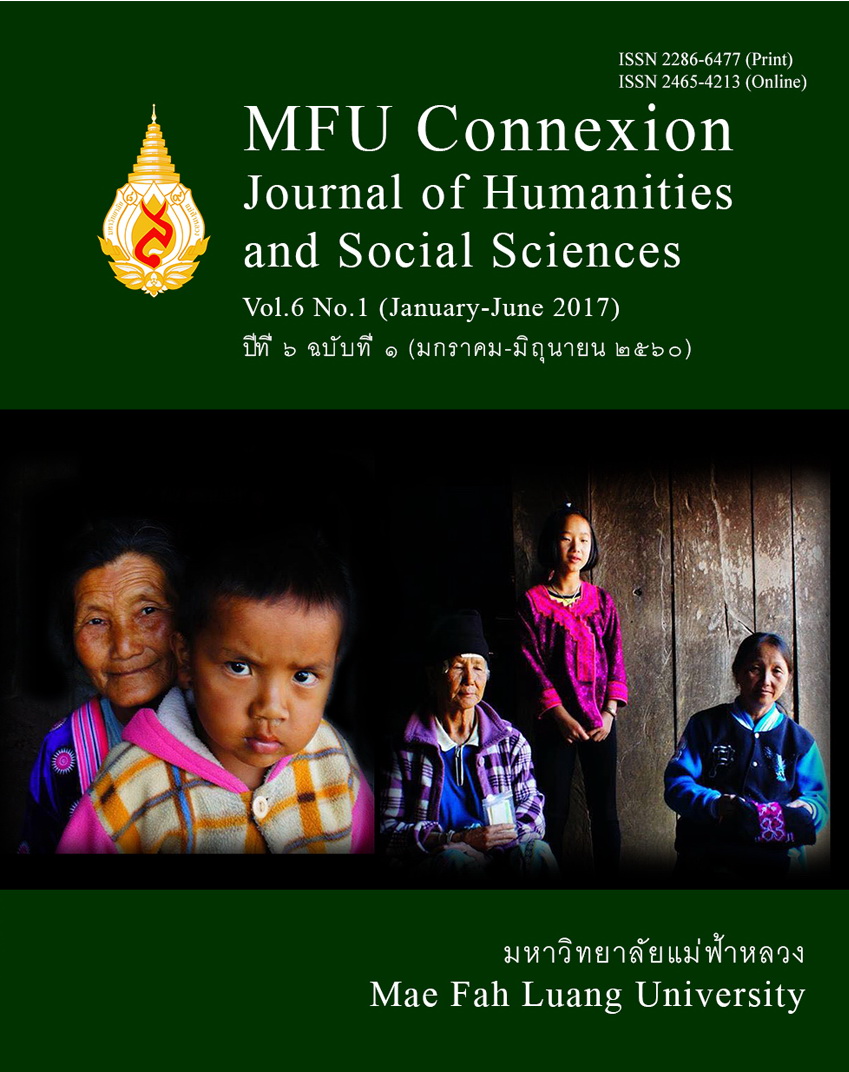Appropriate Proposed Model in Municipal Solid Waste Management at Nongkhwai Municipality, Hang Dong District, Chiang Mai Province (in Thai)
Main Article Content
Abstract
The objectives of this research were to analyze solid waste management in Nongkhwai Municipality, Chiang Mai province in aspects of community perception and participation in garbage administration and management. It is also to propose an appropriate and practical model in municipal solid waste management at Nongkhwai Municipality. The research was document research and field study focused on observing, interviewing and questionnaires. The collecting data from samples derived from 380 households. It was found that the community solid waste management in Nongkhwai Municipality under the operation of The Community Garbage Management Funds is still facing problems of having a large and an increasing amount of garbage. This causes Nongkhwai Municipality having a continuously high expenditure burden on garbage collection and disposal. The perception of the population samples toward the rubbish and garbage situation of Nongkhwai community was at the moderate level while the household participation in garbage disposal was considered at the high level. In term of the appropriate choices of waste management models in Nongkhwai community, according to the opinion of the study, the garbage administration and management should be under the cooperative of Nongkhwai Municipality and The Community Garbage Funds. Furthermore Nongkhwai Municipality should organize and order of garbage disposal among migrant workers, direct and control of garbage disposal in dormitories, renting rooms and apartments. Moreover, there should be some campaign on reducing of plastic bags uses, some pilot area implementation and punishment mechanism.
Article Details
Copyright
Connexion: Journal of Humanities and Social Sciences has an exclusive right to publish the accepted articles in any form. However, the author retains the following rights:
1. The right to the ownership of the article;
2. The right to use all or part of the article in his/her other works;
3. The right to re-produce the article for personal use or for use in the author’s organisation, in which case the author must obtain permission from Connexion: Journal of Humanities and Social Sciences;
4. The right to make copies of all or part of the work for educational use or for the author’s use in classroom teaching; and
5. The right to include the work (both the preprinted and printed versions) in an institutional repository.
References
ธเรศ ศรีสถิตย์, (2558) วิศวกรรมการจัดการมูลฝอยชุมชน, กรุงเทพฯ: วิศวกรรมสถานแห่งประเทศไทยในพระบรมราชูปถัมภ์.
ประเสริฐ เขมาวุฆฒ์. (2548) การประเมินโครงการกำจัดขยะมูลฝอยแบบครบวงจร: กรณีศึกษาเทศบาลตำบลเวียงฝางอำเภอฝางจังหวัดเชียงใหม่, การค้นคว้าแบบอิสระ สาขาวิชาการจัดการมนุษย์กับสิ่งแวดล้อม บัณฑิตวิทยาลัย, มหาวิทยาลัยเชียงใหม่.
มนัส สุวรรณ. (2549) การจัดการสิ่งแวดล้อม: หลักการและแนวคิด, กรุงเทพฯ: โอเดียนสโตร์.
สุจิตรา วาสนาดำรงดี. (2559) ค่ากำจัดขยะ ถึงเวลาที่ประชาชนต้องจ่าย?, จาก http://www.eric.chula.ac.th/pub/article/w_fee.pdf [ค้นเมื่อ 26 กุมภาพันธ์ 2559]
ศูนย์บริหารกฎหมายสาธารณสุข กรมอนามัย. (2556) คู่มือแนวทางการบังคับใช้กฎหมายว่าด้วยการจัดการมูลฝอยสำหรับหน่วยราชการส่วนท้องถิ่นและ เจ้าพนักงานตามกฎหมายการสาธารณสุข, กรุงเทพฯ: โรงพิมพ์ชุมนุมสหกรณ์การเกษตรแห่งประเทศไทย จำกัด.
อนุศรา สาวังชัย. (2555) ยุทธศาสตร์การจัดการขยะเกาะภูเก็ต, ดุษฎีนิพนธ์ปรัชญาดุษฎีบัณฑิต สาขาวิชายุทธศาสตร์การพัฒนา, มหาวิทยาลัยราชภัฏภูเก็ต.


